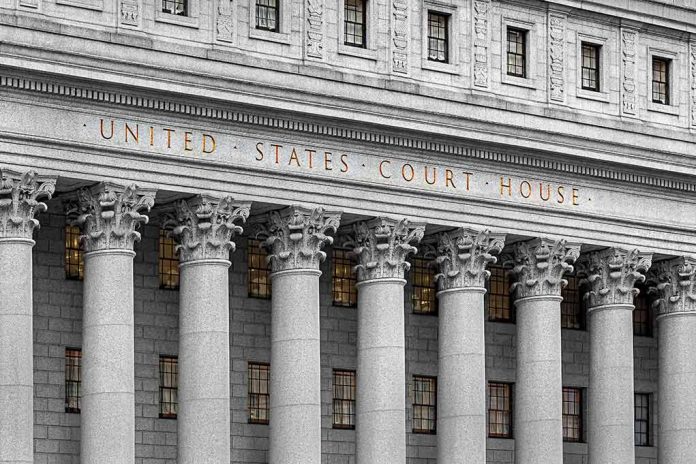
The Supreme Court has ruled to keep Jill Stein, the Green Party candidate, on the Wisconsin ballot despite a challenge from the Democratic Party.
At a Glance
- Jill Stein will stay on the Wisconsin ballot as the Court declined to hear the Democratic challenge.
- Democrats fear third-party candidates might siphon votes from Vice President Kamala Harris, aiding Donald Trump.
- Recent Wisconsin elections have been closely contested.
- The Wisconsin Supreme Court provided no reason for its decision.
- The Green Party views this as a victory against the DNC’s attempts to limit voter choice.
Supreme Court Decision
In a surprising turn of events, the Supreme Court has decided to keep Jill Stein, the Green Party’s presidential candidate, on the Wisconsin ballot. This decision came after a rigorous legal challenge from the Democratic Party, who argue that third-party candidates like Stein could draw crucial votes away from their candidate, Vice President Kamala Harris, potentially aiding former President Donald Trump.
The legal challenge was led by David Strange, an employee of the Democratic National Committee, who claimed that the Green Party failed to meet Wisconsin’s requirements for nominating presidential electors. Nevertheless, the Supreme Court dismissed the lawsuit without providing a specific reason for their decision. Stein celebrated the ruling, heralding it as a triumph against what she called the Democratic National Committee’s attempts to impede electoral fairness.
Political Stakes
Wisconsin is notorious for its closely contested elections. In fact, four out of the last six presidential elections have been decided by narrow margins. The inclusion of Stein on the ballot could significantly impact the outcome, especially considering she garnered over 31,000 votes in the 2016 election, more than Trump’s winning margin in the state.
Many Democrats view Steele’s presence as a potential spoiler, much like in 2016, and thus tried to block her access to the ballot. However, Michael White, co-chair of the Wisconsin Green Party, argued that the complaint was baseless and only served to energize Stein’s supporters. Stein herself called the ruling a “big win against the anti-Democratic Party’s war on democracy and voter choice!”
MADISON — Wisconsin Supreme Court Rules Against Democratic Challenge, Keeps Jill Stein on State Ballot.
— NewsWire (@NewsWire_US) August 26, 2024
Reactions and Responses
DNC spokesperson Adrienne Watson expressed her disappointment with the Court’s decision, insisting that the Wisconsin Green Party clearly violated the state’s electoral laws. On the other hand, Pete Karas, an elections chair for the Wisconsin Green Party, criticized the DNC for trying to disenfranchise voters who wished to vote their conscience.
“For years, Democrats have silenced and disenfranchised Wisconsin voters by removing inconvenient candidates from the ballot,” Wisconsin GOP Chair Brian Schimming stated. “This time around, their undemocratic schemes have failed. If Democrats hope to win over voters, they will have to do so through earnest persuasion instead of disqualification.”
The challenge’s dismissal signifies a broader issue: ongoing political wrangling over the role and influence of third-party candidates. The Wisconsin Supreme Court has previously kept Green Party candidates off the ballot due to technical issues. Yet, this year, the Court’s three-page order supporting Stein marked a significant victory.
“We determine that the petitioner is not entitled to the relief he seeks,” the Court firmly stated in its unsigned order, a declaration that resonates as a major victory for Stein and third-party advocates across the nation.
Future Implications
The implications of this decision extend beyond just Wisconsin. With the 2024 presidential election fast approaching, the legal battles over ballot access for third-party candidates could substantially influence electoral outcomes nationwide. Robert F. Kennedy Jr., for instance, recently ended his presidential campaign and endorsed Trump after realizing his participation was pulling support from Trump, thus highlighting the high stakes involved.
Ultimately, the Supreme Court’s ruling ensures that the electoral process remains open and competitive. As Stein continues her campaign, the focus now shifts to the voters, who will decide the kind of leadership they want for their country.
Wisconsin Supreme Court declines to hear lawsuit against Green Party ballot access













